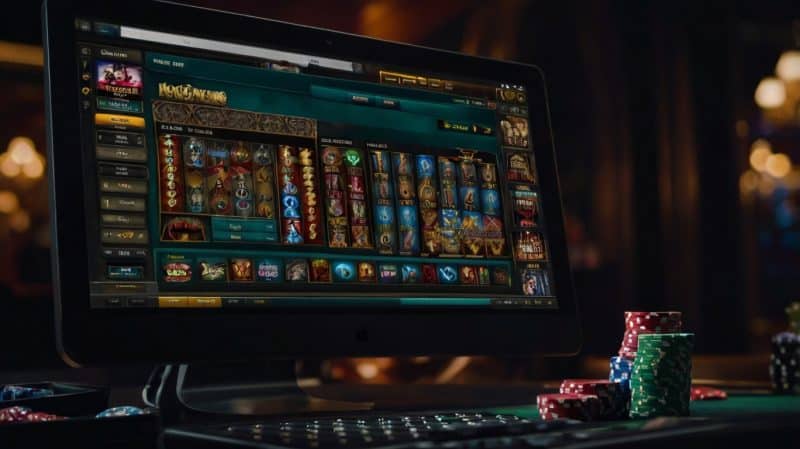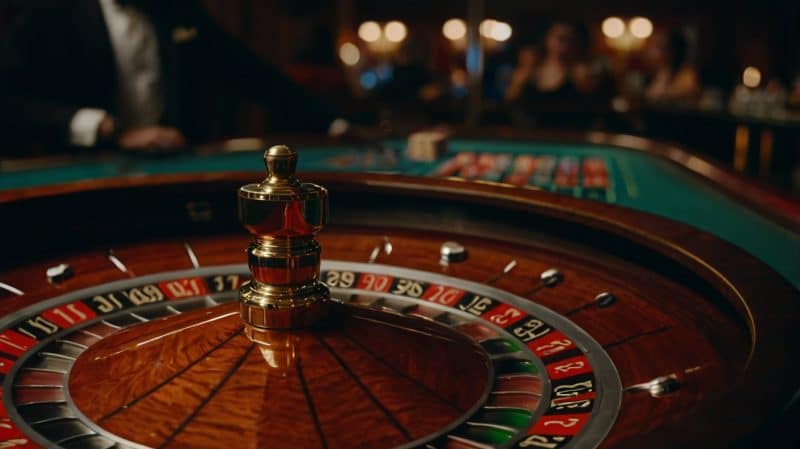Have you ever wondered how gambling came to be? Gambling has been a part of human history for as long as we can remember. From ancient civilizations to modern-day online gambling, it’s an activity that has evolved and changed throughout time. In this blog post, we’ll take a closer look at the origins of gambling, its evolution, and where it might be headed. We’ll also explore the popular free slots no deposit feature, which has become a hit among online gamblers.
Origins of Gambling
The roots of gambling can be traced back to ancient times when people used to play games of chance with simple items such as stones and sticks. In its earliest form, gambling was a way of predicting the future or getting insight into what lay ahead. For instance, people in ancient China used to cast lots to determine their fate.
As societies grew, so did the complexity of gambling. The ancient Greeks and Romans are famous for their love of dice games, often played in taverns and public events. In the 16th century, card games started to gain popularity in Europe, with poker and blackjack emerging as the most played games.
Why did people start gambling?
Throughout history, people have been drawn to the thrill of taking risks and the possibility of reaping rewards. Gambling, in various forms, has been a part of human society for centuries. But why did people start gambling in the first place?
One theory is that gambling served as a way for early societies to establish social bonds and strengthen community ties. In ancient times, people would gather around games of chance and use them as a means of socializing and bonding with one another. In this way, gambling became a way to create a sense of camaraderie and belonging among groups of people.
Another theory is that gambling emerged as a way to appease the gods. Many ancient cultures held the belief that divine intervention determined the outcome of gambling games, and that offerings or sacrifices made during the game could influence the gods.. By engaging in gambling, people could attempt to curry favor with the gods and ensure good luck in other areas of life.
As societies became more complex, gambling took on new meanings and purposes. In ancient Rome, lotteries were used as a means to generate revenue for the state, while in other cultures, gambling was used as a way for individuals to showcase their skill or prowess, such as with card games or sports betting.
What theories explain gambling?
Why do people gamble? This question has puzzled researchers and casual observers for centuries. While there are many theories that attempt to explain the roots of gambling behavior, each offers a unique perspective on the topic.
According to behavioral theory, gambling is attractive because it offers a potentially rewarding experience. The excitement and anticipation of a big win is highly reinforcing, making it more likely that someone will continue to gamble in hopes of achieving that same feeling again.
Social learning theory, on the other hand, explains that people learn to gamble from their environment. This includes family and friends who engage in the activity regularly, as well as cultural and societal norms that may normalize or even encourage gambling behavior.
Cognitive theory coins that people gamble because of inaccurate beliefs about the nature of probability and chance. For example, some people may believe that they are more likely to win after a string of losses, despite the fact that each game is independent and the odds remain the same.
The neurobiological theory suggests that there may be a biological component to gambling behavior. Specifically, differences in brain chemistry and functioning, such as dopamine levels, may play a role in the development of addiction.
Finally, psychoanalytic theory explains gambling as a behavior that may be a manifestation of unconscious psychological conflicts, such as a desire to escape reality or to feel powerful and in control.
While no single theory can fully explain why people gamble, together they provide a comprehensive view of the complex nature of gambling behavior. By understanding these theories, we can gain insight into the reasons why some people are more likely to develop gambling problems, and how we can help individuals who struggle with addiction.
When was Gambling Legalized?
The history of gambling legalization varies widely across different regions and countries, with some legalizing it earlier than others. For example, lotteries were legalized in certain European countries as early as the 15th century.
In the United States, the legalization of gambling was a gradual process that spanned several decades. The state of Nevada was the first to fully legalize casinos in 1931, which kickstarted a trend in other states to follow suit in the following decades. As the popularity of gambling continued to rise, different states subsequently legalized various forms of gambling, such as horse racing, lotteries, and card games.
Evolution of Gambling
The modern gambling industry has evolved considerably over the past few centuries. With the rise of casinos and other gambling establishments, the industry became more mainstream and accessible. The first modern casino opened its doors in Venice, Italy, in the early 17th century, and soon after, casinos started appearing all over Europe.
The United States quickly followed suit, with cities like Las Vegas and Atlantic City becoming hotspots for gambling. However, in recent years, the industry has moved online, with online gambling sites offering various games and free slots with no deposit.
How Technology Has Changed the Gambling Scene
The gambling industry has undergone a technological revolution, bringing a whole new level of excitement and convenience to the world of betting. No longer confined to the brick-and-mortar casinos of old, gamblers can now access a dizzying array of online and mobile platforms from the comfort of their own homes or while on the go.
Thanks to technological advances, the world of gambling has been transformed beyond recognition, with new types of games and betting options springing up like mushrooms after a storm. From virtual reality to live dealer games, technology has allowed players to immerse themselves in thrilling and realistic experiences that were once the stuff of science fiction.
Of course, with great power comes great responsibility. The industry and regulatory bodies must be vigilant in addressing concerns around addiction and access to gambling for vulnerable populations. However, there is no denying that technology has brought a fresh burst of energy and innovation to the world of gambling, and it will be exciting to see how it continues to evolve in the years to come.
Free Slots No Deposit
One of the most popular features of online gambling is free slots with no deposit. This feature allows players to try slot games without depositing money into their accounts. It’s an excellent way to enjoy playing games for hours without using real money. It’s also popular among seasoned players who enjoy trying out new games without risking their bankroll.
As technology continues to advance, so does the world of gambling. Online gambling is now more popular than ever, and virtual reality casinos are already becoming a reality. The future of gambling looks exciting, with new games and features regularly introduced.
Wrapping up
Gambling has come a long way since its ancient origins. It has evolved and changed throughout history, from simple games of chance to online gambling. Free slots with no deposit are just one feature that makes online gambling appealing to players of all levels. As the industry continues to evolve, the future of gambling looks bright and full of possibilities. Head over to Blockspin Gaming today and try gambling with virtual money; there are unique and exciting prizes to be won!




